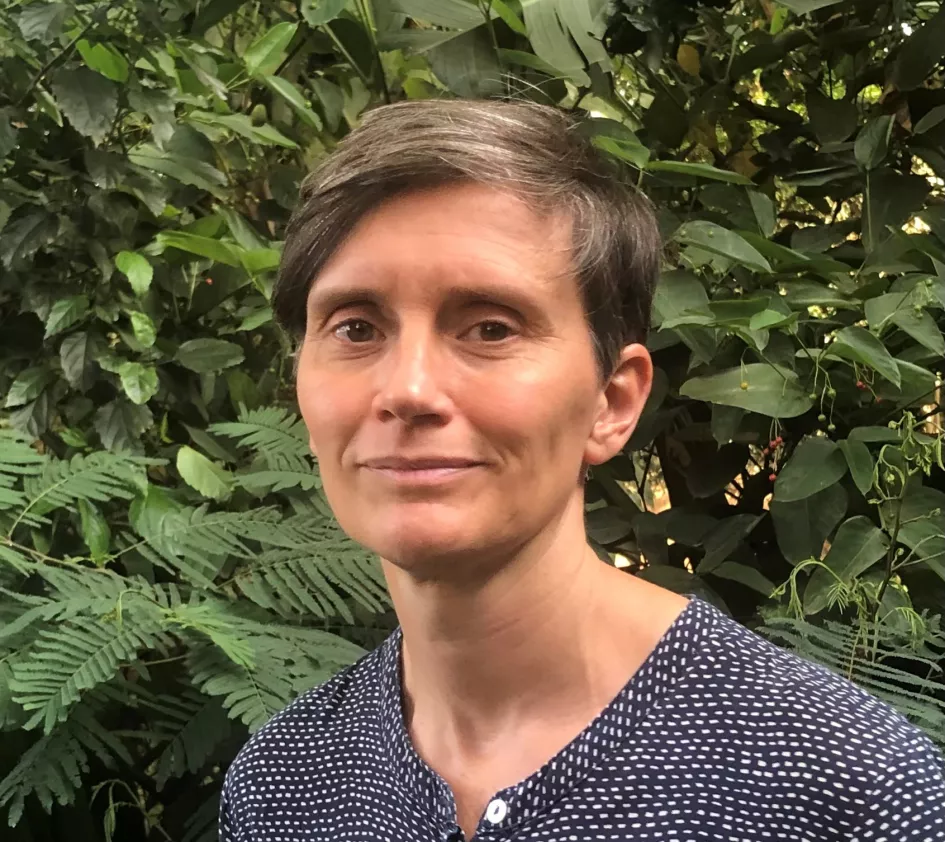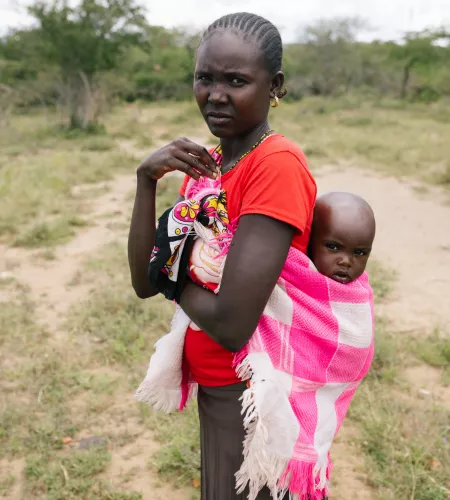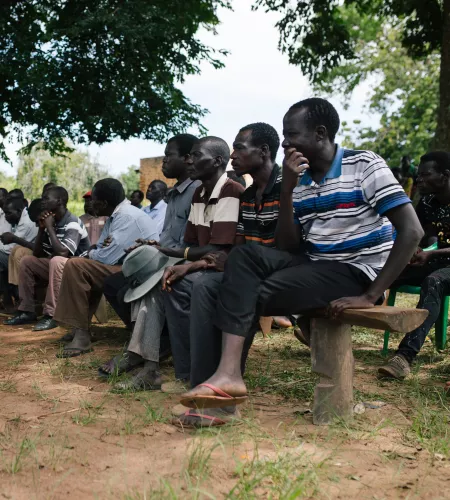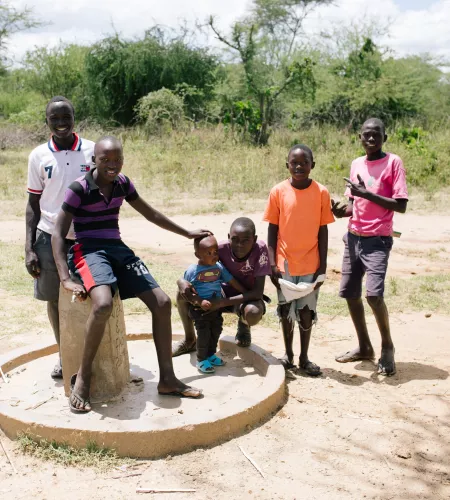Drought, or extreme torrential rain. Harvests that fail, pasture that disappears. Conflicts over lack of water. Climate change is often the root cause for people to flee. Yet this is often insufficiently recognized within the international community - including by aid organizations - says Claire Burger, country director of ZOA in Uganda. “We often do not call these people climate refugees. Climate change as the underlying cause is not mentioned, while that is actually the case.”

'Climate change forces us to look further ahead'
A long-term vision is needed to properly help climate refugees, states Claire Burger of ZOA in Uganda. Climate change is more and more the direct cause for people to flee, as can also be read in ZOA's recently published climate report.
DIRECToR CLAIRE BURGER of ZOA in UGANDA:
'Climate refugees are insufficiently recognized'
Climate change causes people to flee. But the international community is still insufficiently aware of this fact, says Claire Burger, country director of ZOA in Uganda. To be able to help climate refugees properly in the long term, this must change, she believes. “We need to help these people become resilient to climate change by making them look further ahead.”
For two years already, Claire has been living and working in Uganda, where ZOA runs various projects to support people in building up a livelihood. “We clearly see a lot of migration here in East Africa due to climate change,” she says.

As a biologist with a specialization in sustainable agriculture, she sees that the negative impact of climate change on the livelihoods of the most vulnerable people is increasing. “Ultimately it is a justice issue,” she says. “The poorest suffer the most from the impact on the environment caused by the rich. I hope we can do something about this, so that the earth remains habitable for everyone.”
Double loss
Ironically, the people who are most affected often don't even realize that this is happening to them in various ways caused by climate change, says Claire. Climate change causes all kinds of problems, such as deforestation and poor land management upstream, but also lack of opportunities for land tenure, diseases and locust plagues. “If there is no more grazing land for your cattle, you have to leave. And if everyone goes to the same region, conflicts about land or water quickly arise there.”
Young people often exchange a precarious farm life for a - unfortunately equally insecure - job in the city. And there are a lot of young people in Uganda: more than half of the population is under the age of eighteen. “Due to this migration to the city, society loses two things at the same time,” states Claire. “The potential of agriculture and that of the younger generation in the countryside.”
PIP approach
According to Claire, the key to the solution lies in a long-term focus. “Especially for refugees, this requires a change in thinking. They often fear losing the next harvest and live from day to day without looking far ahead.”

The PIP approach (Participatory Integrated Plan), developed by Wageningen University and applied by ZOA in various African countries, helps people at household level to look far ahead and develop a vision for the future. According to Claire, the method therefore has a sustainable impact on society as a whole.
“It's a holistic approach that asks people to think about their family's future,” she says. “What do they want for their children? What kind of climate problems do they think their children will face? These are completely different questions. Often the only thing they ask themselves is: what kind of products do I want to sell tomorrow?”
The long-term vision determines what they can do at the moment, Claire states. What resources can they use? With which techniques can they continue to work their land? How does the quality of the soil improve? And how can they make optimal use of available energy? "If you want to eat fruit in the shade in five years' time, plant a tree today."
Larger scale
Despite the climate problems in the entire region, Uganda has a lot of potential, says Claire. “There is still water available here, there is just too much rain in too short a time. Good water management therefore is crucial.”

If the large young generation is given the opportunity to work the land in a sustainable way, it can make a huge difference in Uganda and the whole of East Africa, she says. “That gives us hope. A lot is possible and there are already many great initiatives.”
Nevertheless, action on a much larger scale is needed to halt the growth of the number of climate refugees, she says. “What we are doing globally right now is nowhere near enough to turn the tide. And that is worrying. Certainly as Christians we have a responsibility to take care of creation. We still have a lot of work to do in this.”
